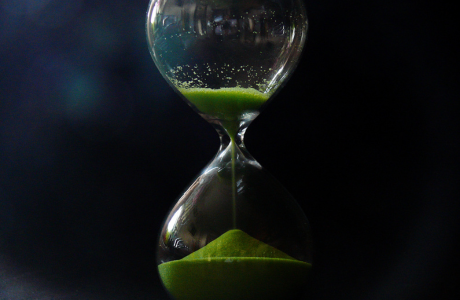The last few years have been a momentous time around the world. We’ve experienced a global pandemic, worldwide floods and fires, plus wars in Ukraine, Gaza, and other places. International tensions are at their highest for some time. Add to that the dire economic challenges many people face because of high inflation, and you might be tempted to think that this is the most challenging time to be alive.
My purpose in this blog is NOT to minimise the genuine hardships and suffering being experienced by many people today. But it may be helpful for our sense of perspective to revisit a time in history that is often described as the worst time to be alive.
When it Wasn’t
When you read “the worst time to be alive,” what comes to mind? Maybe it was the 1300s when the Black Death, a bubonic plague pandemic, wiped out half of Europe’s population. Or was it 1918 when one of history’s bloodiest conflicts ended, only for a global pandemic to begin? The Spanish flu killed more than 50 million people, primarily young adults.
Was it a few decades later when the world was once again plunged into a global war? 1943 was the worst year of World War Two, witnessing some of the largest and bloodiest battles as well as the climax of the Nazi’s genocide of the Jews. At the same time, around 3 million people in the Bengal province (modern-day Bangladesh) died due to famine and disease.
When it Was
But, as bad as they were, none of those were the worst times to be alive. The very worst time in recorded human history was the year 536. That year, a shadowy fog plunged Europe, the Middle East, and parts of Asia into darkness, day and night—for 18 months.
Sixth-century historian Procopius wrote, “For the sun gave forth its light without brightness, like the moon, during the whole year.” Summer temperatures dropped by over two degrees, ushering in the coldest decade in the past 2000 years. China experienced summer snow, crops failed, and people starved. One Irish text from the period describes “a failure of bread” that year. Local conflicts raged under such stressed conditions.
It was the worst time to be alive, with some conditions very similar to those we’re experiencing today because of climate change—drought, less rain in some places, and flash flooding in others.
Just When you Thought …
I’m sure you’ll agree that all that sounds like an awful time. But it got worse. Five years later, in 541, the bubonic plague struck the Roman port city of Pelusium on Egypt’s Nile Delta. Known as the Justinian Plague, it quickly spread and killed up to 50% of the population of the Eastern Roman Empire. These cataclysmic events plunged Europe into economic stagnation for a century.
I find this fascinating and strangely comforting. It’s easy for us to look around the world today and despair. But people in the past have faced far worse than we do today. The human race is incredibly resilient.
What Caused it?
The cause of the dark clouds in the Dark Ages has, until recently, been a mystery. According to the Science.org website, “an ultraprecise analysis of ice from a Swiss glacier…has fingered a culprit—a cataclysmic volcanic eruption in Iceland spewed ash across the Northern Hemisphere early in 536.” Two other massive eruptions followed, in 540 and 547, plunging much of the world into a Volcanic Winter.
When a volcano erupts, it emits sulphur, bismuth metal dust, and other substances high into the atmosphere, forming an aerosol veil that reflects the sun’s light into space, cooling the planet.
The discovery is intriguing and current because, as I write this blog, Iceland’s volcanos are once again threatening to erupt. Yesterday’s news from the Icelandic Met Office warned that an eruption could start with very little warning time. The hazard level was raised to indicate an impending eruption.
Our Response
I am not suggesting that any imminent eruption may be as destructive as the one in 536. But what if it was? What if the world was plunged into semi-darkness for a year or two? How would we respond and cope with this?
Would some of our Christian friends dive into bizarre conspiracies as they did during the recent pandemic? Would futuristic interpretations of Revelation zoom around the internet? Or would Christians follow Jesus and humbly seek to serve those most impacted by the disaster? I hope it’s the latter.
The last few years have shown us that modern people are not exempt from natural or human-made disasters. We must prepare for future catastrophes and pandemics that may affect this planet. Today’s world is not somehow exempt from these things. Please choose now to act in a way that reflects our faith in the one who came to serve and give his life to others.
The apostle Peter encourages us to “stand firm in the faith because you know that the family of believers throughout the world is undergoing the same kind of suffering. And the God of all grace, who called you to his eternal glory in Christ, after you have suffered a little while, will himself restore you and make you strong, firm and steadfast. To him be the power forever and ever. Amen.”



